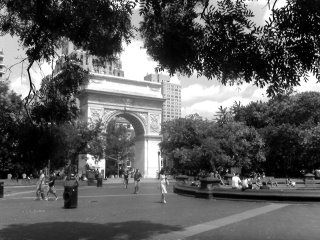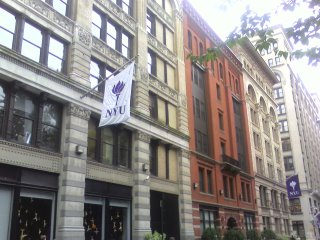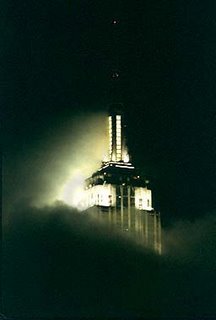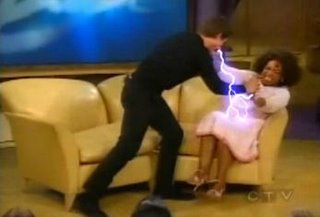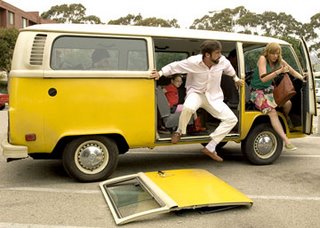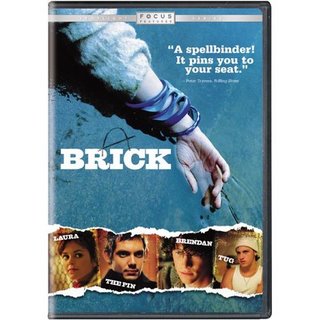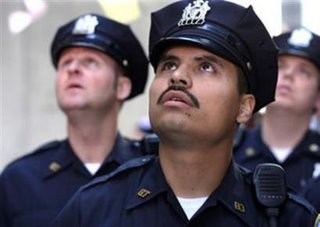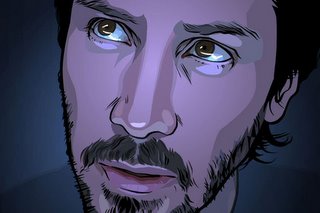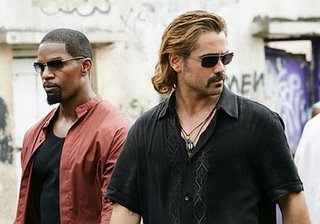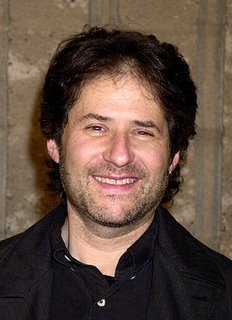Oh Captain, my Captain
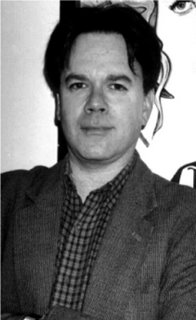
It's humbling to go from one of the smart kids on the block to just being one in a sea of dozens.
Back home in Colorado, I was, as my wife calls me, a walking IMDb. Ask me any movie question, any dose of trivia, any cinematic stumper and odds are I know it. It's my curse. It's also one of the reasons I thought I might try making a living at it.
That was Colorado. This is New York University's Tisch School of the Arts Cinema Studies Graduate Program.
Here, I am no one special. Being a walking IMDb is a talent everyone here has. My uniqueness is lost among a vibrant student body every bit as knowledgeable as I am, and many more so.
I arrived on Tuesday to begin my orientation. Though classes do not officially begin until next week, I am already starting to feel out my surroundings, test my boundaries, and scent the air for the spice of what is to come.
And I'd be lying if I said I wasn't nervous. Sometimes frightened to death.
I don't belong here. I'm a fraud. I'm nowhere near qualified for this. They are going to see right through me and kick me out the first chance they get. I am going to be the laughing stock of NYU.
And then I think of Robert. And I know I'll be fine.
I suppose I should back up a bit.
As I've mentioned here before, film was never something I thought to pursue seriously. I always saw it as a hobby, not a career. I couldn't help but look upon it as irresponsible and narcissistic at best. A thing to play at but never something on which to risk or build a life.
The first film class I took was little more than a reward to myself for starting college again after being honorably discharged from the Navy. I thought I deserved at least one fun class.
That class was Narrative Film 200. The professor was Dr. Robert von Dassanowsky.
And he is responsible to changing the course of my life.
The University of Colorado at Colorado Springs, while the fastest growing university in Colorado, deemed one of the best in the west and an up-and-coming juggernaut according to US News and World Report, was not always so. In fact, growing up in Colorado, UCCS was looked down upon as a commuter campus peopled by middle-aged returning students. That it has utterly exploded in popularity, quality and enrollment in the last decade has still not totally erased from my mind its mediocre past.
Which is why I am always amazed that UCCS had someone with Robert von Dassanowsky's credentials on staff.
The Professor and Chair of Languages and Cultures and Director of Film Studies at the University of Colorado at Colorado Springs, Robert is an academic, a film and cultural historian and a filmmaker. An Austrian-American whose mother, Elfi von Dassanowsky, was one of the first female studio founders in Vienna, Robert writes extensively about Germanic affairs and is particularly known as one of the foremost scholars on photographer and filmmaker, Leni Riefenstahl. His "Austrian Cinema: A History" is the first English language survey of that nation's contributions to the world of film. A founding Vice President of the Austrian American Film Association (AAFA), Robert is one of the few Americans to have been elected to the European Academy of Sciences and Arts and was decorated by the president of Austria. Robert is also an award-winning playwright, television screenwriter, and film producer. He was recently named the Carnegie Foundation/CASE U.S. Professor of the Year for Colorado. He is currently on sabbatical, writing a book on 60s psychedelic cinema and is a guest professor at UCLA.
He is also my mentor and dear friend.
It was Robert who took a young man sure of his zeal but unsure of his talent and pointed him in the direction of his destiny. It was he who saw what no one else saw, least of all the young man, and pounced on it with gleeful abandon. It was he who convinced this young man that he had what it took to work in the film industry. It was he who urged me to run with my desires, shut out the cacophonous din of naysayers, and seize the day. And I was not the only one. A true believer, Robert selflessly gave of everything he had to see his students flourish. His legacy is those he's brought along with him.
I don't know how much longer Robert will be at the University of Colorado at Colorado Springs. If his calling was to single-handedly take a non-existent program and turn it into one of the most respected and comprehensive out there, he has done that. Like the cinematic archetype who comes to town, cleans up and disappears, I imagine Robert is not long for Colorado. I'd be very surprised if I didn't find him climbing his way to the top of one of this nation's premiere film schools very soon. Or settling into a role as a major shepherd and vanguard of some of Hollywood's breathtaking future projects.
I am so glad he was there when I began taking classes. I am so glad he took me under his wing and mentored me, encouraged me, molded my mind and pushed me from the nest with a battery of tools necessary to make it on my own.
It is because of his influence and guidance that I can bring down the butterflies within my stomach and reign in the fear and doubt which still try to rear their ugly heads from time to time. It is because of his training and touch that I know I can not only compete here at NYU, I can excel.
As my time at grad school dawns, I want to say thank you, Robert. I am here—in so many ways—because of you. And I will thrive because of that which you have given me—a dream and a future not too monolithic that a film geek from Colorado, properly empowered, can't climb it.


